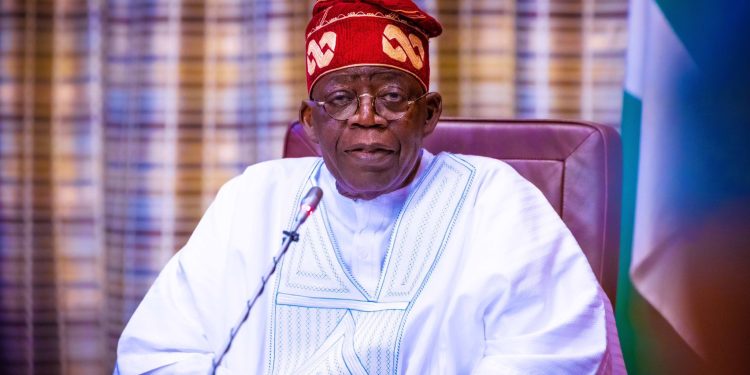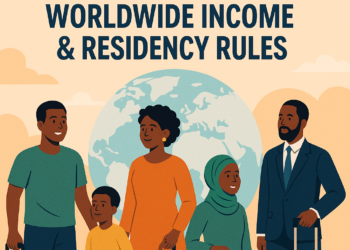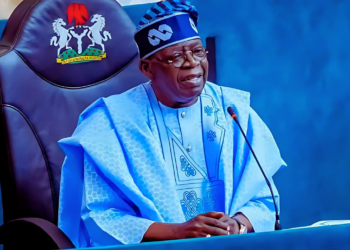In a significant move, the Presidency unveiled the lineup of ministers who will collaborate with President Bola Tinubu in steering Nigeria’s diverse sectors. This unveiling comes as the nation eagerly anticipates the strategic direction this new ministerial team will set for the country’s future.
Let’s delve into the full roster of ministers and their respective designations:
- Minister Of Communications, Innovation And Digital Economy: Bosun Tijani
- Minister Of State, Environment And Ecological Management: Ishak Salako
- Minister Of Finance And Coordinating Minister Of The Economy: Wale Edun
- Minister Of Marine And Blue Economy: Bunmi Tunji-Ojo
- Minister Of Power: Adebayo Adelabu
- Minister Of State, Health And Social Welfare: Tunji Alausa
- Minister Of Solid Minerals Development: Dele Alake
- Minister Of Tourism: Lola Ade-John
- Minister Of Transportation: Adegboyega Oyetola
- Minister of Industry, Trade and Investment: Doris Anite
- Minister of Innovation Science and Technology: Uche Nnaji
- Minister of State, Labour and Employment: Nkiruka Onyejeocha
- Minister of Women Affairs: Uju Kennedy
- Minister of Works: David Umahi
- Minister of Aviation and Aerospace Development: Festus Keyamo
- Minister of Youth: Abubakar Momoh
- Minister of Humanitarian Affairs and Poverty Alleviation: Betta Edu
- Minister of State, Gas Resources: Ekperikpe Ekpo
- Minister of State, Petroleum Resources: Heineken Lokpobiri
- Minister of Sports Development: John Enoh
- Minister of Federal Capital Territory: Nyesom Wike
- Minister of State, Housing and Urban Development: Abdullahi Gwarzo
- Minister of Budget and Economic Planning: Atiku Bagudu
- Minister of State, FCT: Mariga Mahmoud
- Minister of State, Water Resources and Sanitation: Bello Goronyo
- Minister of Agriculture: Abubakar Kyari
- Minister of Education: Tahir Mamman
- Minister of Police Affairs: Ibrahim Geidam
- Minister of Foreign Affairs: Yusuf Tuggar
- Minister of Interior: Saidu Alkali
- Coordinating Minister of Health and Social Welfare: Ali Pate
- Minister of State, Steel and Development: Maigari Ahmadu
- Minister of Steel and Development: Shuaibu Audu
- Minister of Information and National Orientation: Muhammed Idris
- Attorney General of the Federation and Minister of Justice: Lateef Fagbemi
- Minister of Labour and Employment: Simon Lalong
- Minister of State, Police Affairs: Inman Suleiman
- Minister of Special Duties: Zephaniah Jisalo
- Minister of Water Resources and Sanitation: Joseph Utsev
- Minister of State, Agriculture and Food Security: Aliyu Abdullahi
- Minister of Arts, Culture and Creative Economy: Hannatu Musawa
- Minister of Defence: Muhammed Badaru
- Minister of State for Defence: Bello Matawalle
- Minister of State, Education: Tanko Sununu
- Minister of Housing and Urban Development: Ahmed Dangiwa
Some Thaughts on the Ministerial List
This diverse lineup encompasses professionals with varied expertise, intended to drive the nation’s development agenda across numerous sectors. In the days ahead, there will be discussions about whether each minister’s portfolio aligns with their strengths, experiences, and commitments to chart a path toward growth and progress.
Nigeria at the momment requires technocrats to help steer the country through the rough path to better days for the over 200 million citizens hungry for change. The expectation before now was that ministerial selection rshould eflect a blend of established figures and fresh minds, aiming to infuse innovation and experience into Nigeria’s governance.
As we assess the suitability of these appointments, it’s crucial to evaluate the track records, competencies, and vision each minister brings to their designated roles. President Tinubu’s decision to appoint this array of individuals will be tested sooner than letter as their performances are considered.
For these ministers to succeed, every single step they take going further must reflect a strategic approach to enhancing governance effectiveness, bolstering economic resilience, and addressing the multifaceted challenges facing the nation.
The nation now eagerly anticipates the ministers’ initial actions, strategies, and policies that will underpin their approach to governance. As they assume their respective responsibilities, Nigerians will keenly watch how these ministers collaborate, strategize, and steer Nigeria towards a future marked by sustainable development, prosperity, and equitable progress.












